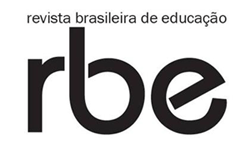ABSTRACT
The article is a theoretical essay that emerges from a research experiment shared between Laboratório das Memórias e das Práticas Cotidianas and Movimento Social FOME. It discusses non-formal educational practices promoted by this movement, which operates in the peripheral neighborhoods of Sobral, a city located in the north of the Brazilian state of Ceará. The purpose is to show that these non-formal educational practices in neighborhoods associated with violence and poverty can be seen as forms of resistance construction. The resistance of the “quebradas” is for the construction of a humanity in the full sense of the concept. These non-formal educational practices will also serve as a parameter to rethink school practices on certain issues, with special emphasis on practices of direct democracy, self-management, co-responsibility, creative freedom, valorization of the geographic place and place of speech, as well as the defense of full humanity.
KEYWORDS
non-formal education; full humanity; education; pedagogy of the invention of everyday reality
